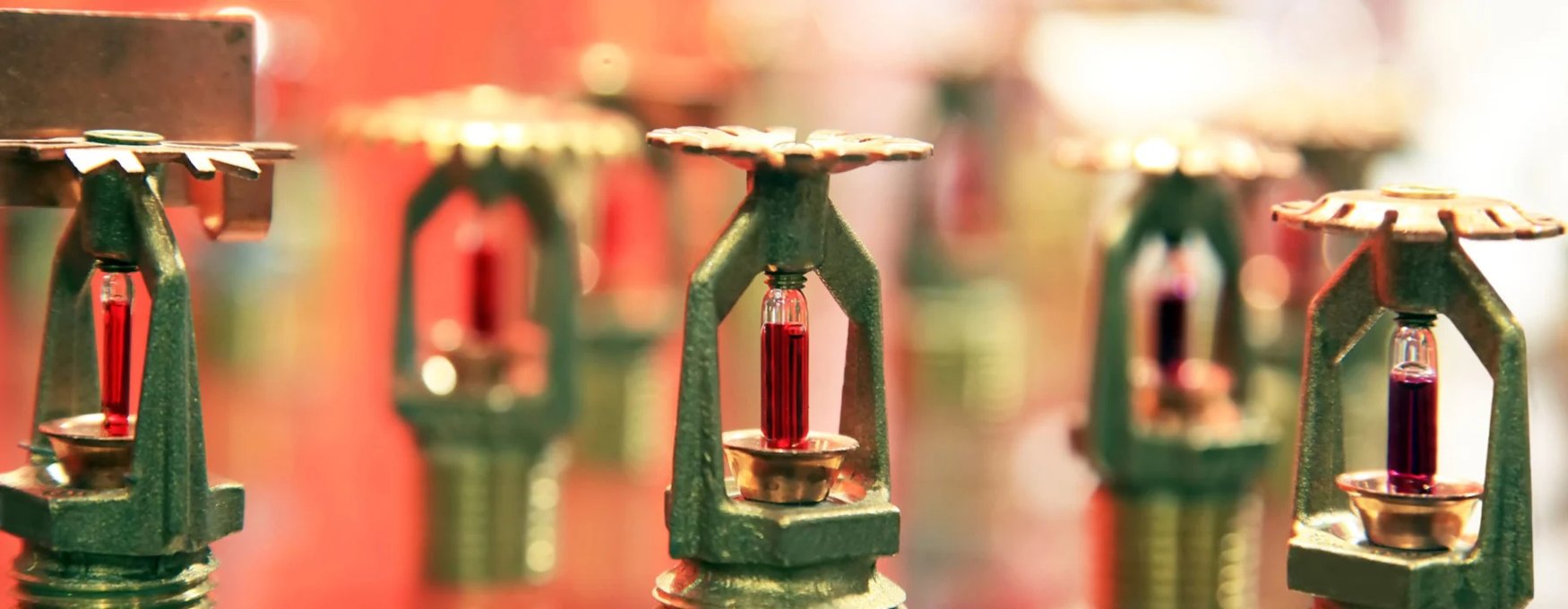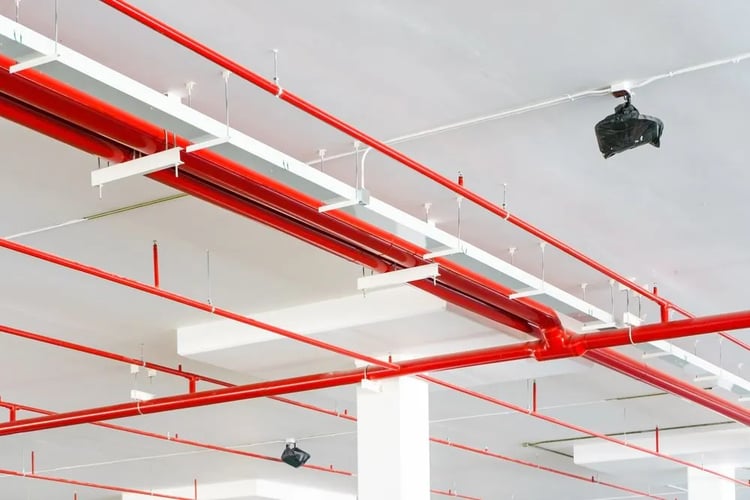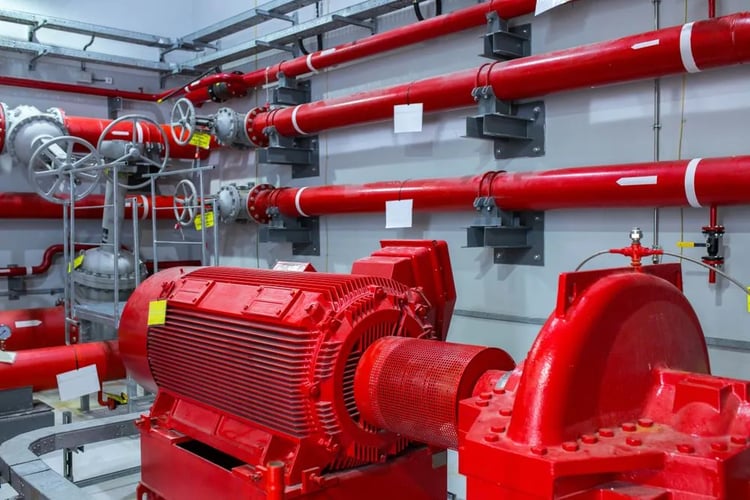How Important Are Hydraulic Calculations in Sprinkler System Design?

Automatic sprinkler systems are one of the most effective fire protection measures you can have in a building. Fire sprinklers respond automatically to localized heat, quenching any active flames before they can spread. Contrary to popular belief, fire sprinklers don’t shower an entire floor when they activate - only those directly above the fire open in response to heat, and the rest remain closed.
The main challenge for fire protection engineers is designing an automatic sprinkler system that releases enough water in case of fire, at a suitable pressure, but without making the installation too expensive. Oversized pipes can greatly increase the cost of a sprinkler system, and you also need larger and more expensive pumps to achieve adequate pressure and flow rate.
Fire sprinkler systems have been traditionally designed based on the pipe schedule method. This approach ensures an adequate water flow, but the downside is that many sections of the system end up being oversized. On the other hand, when fire protection engineers use the hydraulic calculation method, they can optimize piping diameters without compromising safety.
Here we will discuss the main advantages of designing a fire sprinkler system with the hydraulic calculation method. You can often reduce installation costs by thousands of dollars while meeting local building codes and NFPA standards. The hydraulic calculation method requires more complex calculations than the pipe schedule method, but you get reliable fire protection at a lower cost. Also, these calculations are no longer an issue thanks to engineering software.
Hydraulic Calculations Save on Piping Costs

When engineers use the pipe schedule method to design a fire sprinkler system, they select piping diameters based on tables. This is a straightforward method with simple calculations, but its main drawback is that pipes are often oversized.
- Oversizing has a cumulative effect on sprinkler system costs, since all components located upstream must also be sized larger.
- If the branch lines leading to individual sprinkler heads are oversized, you also need to increase the diameter of cross mains and risers.
With the hydraulic calculation method, fire protection engineers can determine the optimal diameters of branch lines, cross mains and risers. This design method reduces system costs, without affecting performance and ensuring code compliance. The hydraulic calculation method can often achieve material and labor savings of over 20% compared with the traditional pipe schedule method. Building owners not only save by purchasing smaller pipes; fitting sizes and installation costs are also reduced.
The hydraulic calculation method is also more adaptable, since you can use it for any piping material. On the other hand, the pipe schedule method is limited to the materials available in the design tables.
Get a Professional Sprinkler System Design for Your Project!
Hydraulic calculations are not only used to optimize piping diameters, but also the overall layout of a fire sprinkler system. With the pipe schedule method and manual calculations, you can only analyze simple configurations - piping branches and loops. On the other hand, when design engineers use computers for hydraulic calculations, they can analyze more complex piping layouts. This includes grid configurations, where there are many possible paths between the water supply and each sprinkler head, making the system more reliable.
Hydraulic Calculations Avoid Oversized Pumping Systems

When the diameters in a piping system are increased, you also need larger pumps to achieve adequate pressure and flow. As you might expect, this adds even greater costs to an automatic sprinkler system. When piping diameters are optimized with the hydraulic calculation method, you can also determine the optimal pump size for the sprinkler system.
Keep in mind that a larger pump also draws higher current, which means you must increase the capacity of the associated electrical installations. You need to increase the wiring and conduit sizes, along with circuit breaker ratings, further increasing the cost of your project.
To reduce the cost of an automatic sprinkler system, you need to optimize the sprinkler head layout and piping sizes. Excessive sprinkler heads and oversized branch pipes increase the cost of all other system components: cross mains, risers, pumping systems and electrical installations. With the hydraulic calculation method, you can eliminate the costs associated with oversizing.
If you need to install a fire sprinkler system for a building, NY Engineers offers the hydraulic calculation method as an on-demand service. Once you submit your building information, our experienced fire protection engineers can deliver an optimized sprinkler system design within five days.

Anuj Srivastava
Anuj Srivastava is a principal partner at NY Engineers. He is known for his MEP franchise market knowledge. Anuj is currently leading a team of 100+ MEP/FP engineers and has successfully led over 1500 franchise projects in the US.
Related Posts
Join 15,000+ Fellow Architects and Contractors
Get expert engineering tips straight to your inbox. Subscribe to the NY Engineers Blog below.



